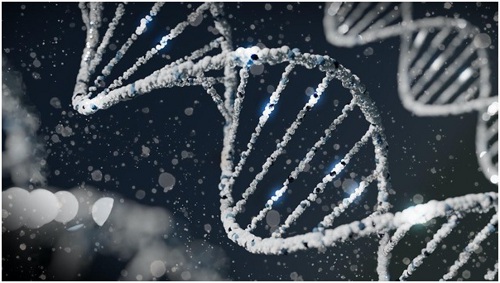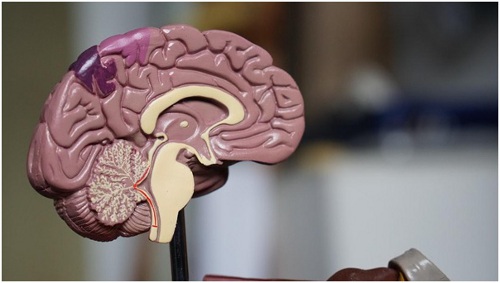Have you ever wondered what NAD is and why it’s so important for our bodies? Nicotinamide adenine dinucleotide (NAD) is an essential coenzyme that plays a crucial role in various biological processes, such as energy metabolism, DNA repair, and gene expression. In this article, we will explore the significant benefits of NAD, as well as its potential roles in treating age-related diseases and maintaining overall health. Keep reading to learn more about this extraordinary molecule and how it can support your well-being.
The Role of NAD in Energy Production
One of the most critical functions of NAD is its involvement in energy production within our cells. NAD is a critical coenzyme for enzymes called dehydrogenases, which are responsible for generating cellular energy through the breakdown of carbohydrates, fats, and proteins. This process is known as cellular respiration, and it produces a molecule called ATP (adenosine triphosphate), which is the primary source of energy for every cell in our body. As a result, having sufficient NAD levels ensures that our cells can efficiently produce the energy required for their proper functioning and maintenance.
NAD has a unique ability to accept and donate electrons in the process of cellular respiration, making it an essential component in the conversion of nutrients into energy. It is because of this dynamic characteristic that NAD is essential for overall health and vitality. When our NAD levels are adequate, we can experience increased energy, better focus, and improved physical performance. On the other hand, low NAD levels are associated with fatigue, reduced mental clarity, and slowed metabolism.
Boosting Cellular Repair and Longevity
NAD is also instrumental in supporting cellular repair mechanisms, particularly those related to DNA damage. Our DNA is susceptible to damage throughout our lives due to various factors, including environmental toxins, ultraviolet radiation, and oxidative stress. If not repaired correctly, DNA damage can lead to mutations, cellular dysfunction, and, eventually, diseases like cancer. NAD works by activating a type of enzyme called sirtuins, which are responsible for repairing damaged DNA and promoting cellular longevity.
Research has linked adequate NAD levels and sirtuin activity to increased longevity and overall health. By promoting proper DNA repair and cellular health, NAD helps combat the negative effects of aging and optimizes our long-term well-being. Furthermore, recent studies have shown that boosting NAD levels may have therapeutic potential in treating age-related diseases such as Alzheimer’s, Parkinson’s, and cardiovascular diseases.
Additionally, NAD promotes the production of antioxidants within our cells, further protecting them from oxidative stress and damage. This function contributes to the maintenance of cellular health and the prevention of various age-related diseases rooted in oxidative stress.
Enhancing Brain Function and Mental Health
As previously mentioned, NAD supports cellular energy production and DNA repair, both of which are essential for maintaining optimal brain function. Our brains consume a significant amount of energy daily, and having sufficient NAD levels helps ensure that the high energy demands of the brain can be met. This support leads to improved neuronal functioning, better cognitive performance, and overall enhanced mental health.
NAD also plays a role in regulating neurotransmitters, the chemicals responsible for relaying messages between brain cells. Neurotransmitters are crucial for maintaining proper communication within the brain and optimal mental function. By supporting neurotransmitter production, NAD helps promote emotional well-being and optimal cognitive performance.
Furthermore, NAD has been linked to the health and function of mitochondria, the energy-producing structures found within our cells. Healthy mitochondrial function is crucial for brain cells and overall cognitive performance since neuronal cells have a high energy demand. Research is currently exploring the potential benefits of NAD supplementation in treating neurological conditions such as Alzheimer’s disease and other age-related cognitive disorders.
Immune System Support
Lastly, NAD plays a role in supporting our immune system’s function. Adequate NAD levels are essential for proper immune cell function, as these cells rely heavily on cellular energy production to mount an effective immune response against pathogens. By supporting cellular energy production, NAD helps maintain a robust and efficient immune system that can protect us from various diseases and infections.
Additionally, the same sirtuin family of enzymes involved in DNA repair and aging also modulate immune cell function. This modulation helps maintain a balanced immune response, preventing inflammation and autoimmune reactions that can lead to various health issues. As a result, maintaining adequate NAD levels can contribute to a well-functioning immune system and overall health.
Altogether, NAD is an indispensable coenzyme that supports our bodies in numerous ways, including energy production, cellular repair, cognitive function, and immune system maintenance. By ensuring adequate NAD levels, we can enhance our overall health and well-being while potentially combating the negative effects of aging and disease.






















